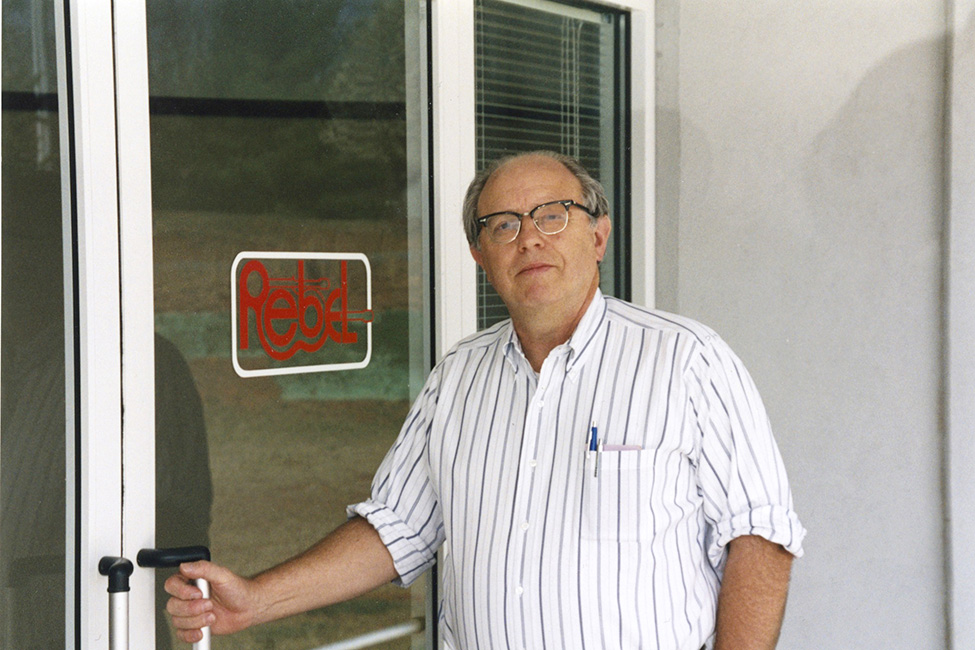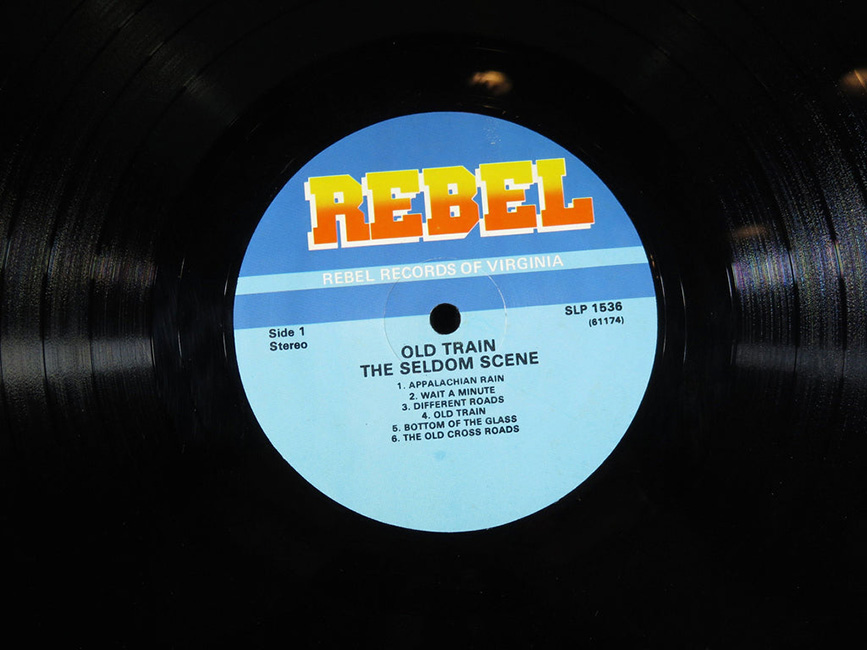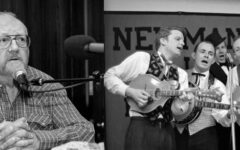
Dave Freeman, bluegrass and old time music archivist, record label owner, and historian, has died at 84 years of age. He passed early on Christmas morning after several years of ill health, at home, surrounded by family.
He is perhaps best known for his ownership and management of the Rebel and County labels, and as founder and long time operator of the County Sales mail order retail music shop. For years his recommendations in the monthly County Sales newsletter were the most sought-after review in our industry, primarily because of their honest and direct assessments of new recorded music.
But Freeman had even deeper ties to the music business than those most visible to fans and consumers. He had also established a music wholesale operation, Record Depot, which serviced record stores all over the world with LPs, CDs, and box sets from traditional music artists that major distributors never stocked. Dave was also on the ground floor of Sugar Hill Records, which he launched with Barry Poss, who eventually bought out Freeman’s share and moved the company from Roanoke, VA to Raleigh, NC.
Rebel Records helped develop the careers of crucial bluegrass acts like Ralph Stanley, The Country Gentlemen, J.D. Crowe, The Seldom Scene, Lost & Found, Tony Rice, The Traditional Grass, Del McCoury, Cliff Waldron, Lonesome River Band, Red Allen, Joe Mullins & The Radio Rounders, Junior Sisk & Ramblers Choice, Kenny & Amanda Smith, and Dave Evans, all of whom recorded early projects with Rebel.
Born in New York City on May 22, 1939, Dave first discovered bluegrass while on a family trip to New Orleans when he was an early teen. There he found a radio station that played old time and the newly emerging bluegrass music that was to become his life’s passion. Back home he found a similar radio outlet, where he learned to love the music of Flatt & Scruggs, Reno & Smiley, Bill Monroe, The Stanley Brothers, and other pioneers of the genre.
He also found spots that offered live bluegrass, like New River Ranch and Sunset Park, and began to form a circle of young friends with similar tastes. Finding records to feed this new hunger wasn’t easy for a New Yorker in the 1950s, and Dave became an avid collector of what he could locate. Among his compatriots was Bill Vernon, a neighbor in Brooklyn Heights, who would go on to become a hugely influential radio host in bluegrass. The two started out their ardor for collecting together.
After a few years working as a railway clerk, Freeman indulged his entrepreneurial spirit by launching County Records in 1965. Frequent trips down south to hunt for recordings, often with Vernon and another fellow collector, Charlie Faurot, were helped by a job with the railroad, and Freeman began to make connections with traders in the southeast. He would buy rare albums when he could find them, and offered auctions for fellow hobbyists. Success in that venture gave him the confidence to launch a label dedicated to what we now call traditional bluegrass and old time music.
The first releases of new music on County included LPs from Larry Richardson & Red Barker and the Blue Ridge Boys, Red Allen & the Kentuckians, Kenny Baker, The Lilly Brothers, Bill Clifton, and Curly Seckler. Though with Rebel he released lots of more modern music, Dave’s preference was always for the old time style.
In a piece celebrating his 80th birthday back in 2019, Richard Thompson covered the next stage of Freeman’s career…
In 1965 Freeman started County Sales, a business that enabled him to quit his day job with the Railway Mail Service. In the beginning, County Sales was run from a New York warehouse until, in 1974, he moved to a farmhouse that he purchased in Floyd, Virginia.
Three years later he set up Record Depot, a warehousing and wholesale distribution facility, in Roanoke, Virginia, that he sold to Chet Rhodes in 2003.
In 1978 Freeman and Barry Poss formed Sugar Hill Records, which in the two years that Freeman retained an interest in company, released LPs by Ricky Skaggs; Boone Creek; The Seldom Scene; the superb eponymous debut album by Doyle Lawson & Quicksilver, Dan Crary; Vic Jordan; and Buck White & the Down Home Folks.
On January 1, 1980, Freeman purchased Rebel Records from Dick Freeland, and Freeman immediately had a significant catalog of traditional bluegrass recordings, amounting to over 100 LPs, featuring artists such as Earl Taylor & the Stoney Mountain Boys; Benny & Vallie Cain and the Country Clan; Buzz Busby; Bill Harrell; The Shady Valley Boys; Red Allen & Frank Wakefield; Ralph Stanley & the Clinch Mountain Boys.
Dave eventually moved the business to Charlottesville, VA and sold the wholesale distribution business, Record Depot, to Chet Rhodes, who had managed the operation for many years. From Charlottesville he gradually gave over management of Rebel and County Records to his son Mark, who has run it completely since his father’s retirement.
Rebel continues to record and release new bluegrass music, with a focus on traditional bluegrass, with such popular acts as High Fidelity, The Kody Norris Show, Starlett & Big John, Larry Sparks, Big Country Bluegrass, and Peter Rowan currently signed to the label.
Before retiring, Dave and his wife moved down near Chapel Hill, NC in 2005, where he lived the remainder of his life.
Throughout all of his dealings, Freeman insisted on complete honesty and transparency with all of his artists, clients, publishing companies, and employees in all business endeavors. He so impressed this lesson on Mark that this has become the legacy of the label, where artists and writers never doubt that their royalties will be received, even when sales dwindle to very little.
His breadth of knowledge was encyclopedic, and his memory for obscure artists and labels in old time music especially was remarkable. In fact, even after retiring, Dave kept his hand in auctions of rare finds, the same aspect of the record business that had lit his spark in the early 1950s.
Though not effusive, he was ineffably pleasant any time you might have dealings with him, and everyone could count on his word. That certainly doesn’t fit the cliched stereotypes of record company owners, but Dave Freeman was as straight as they came.
He was twice honored by the IBMA, with a Distinguished Achievement Award in 1989, and being inducted into the Hall of Honor (as it was known then) in 2002.
This past few years had seen hm suffering from Alzheimer’s disease, a very sad way to go out of this life.
But the legacy left behind is one that future generations will continue to enjoy in perpetuity. Dave Freeman was a giant in our industry.
The family is not planning on a public funeral service, though a Celebration of Life is likely once the weather gets warmer.
R.I.P., Dave Freeman.










